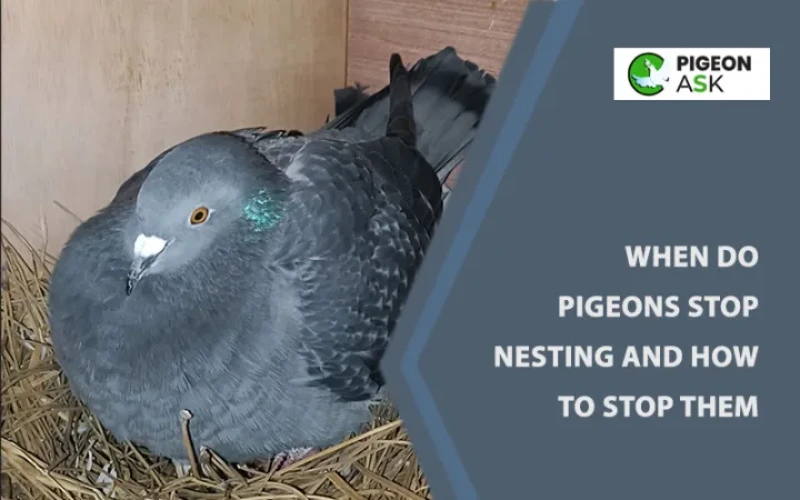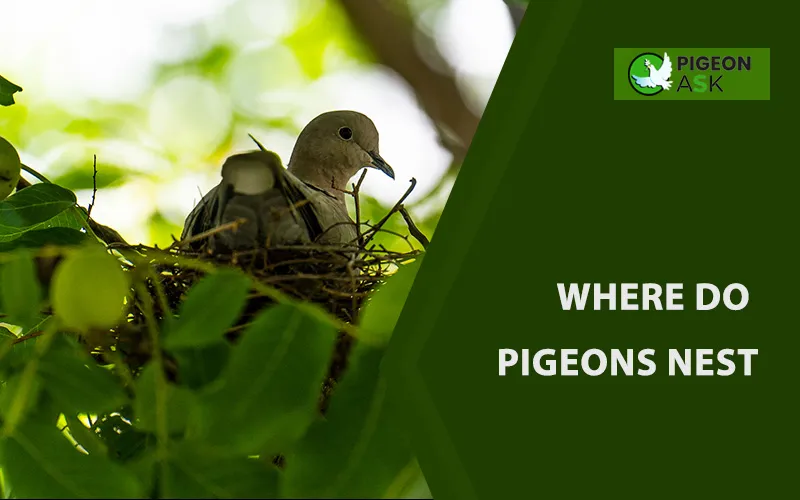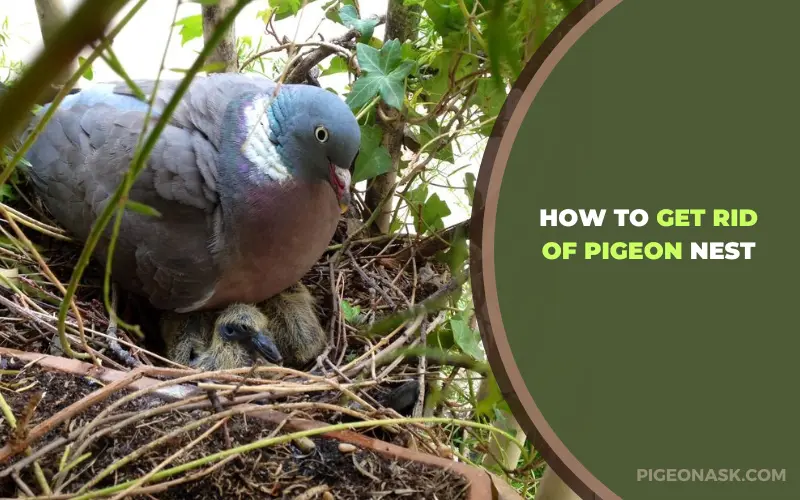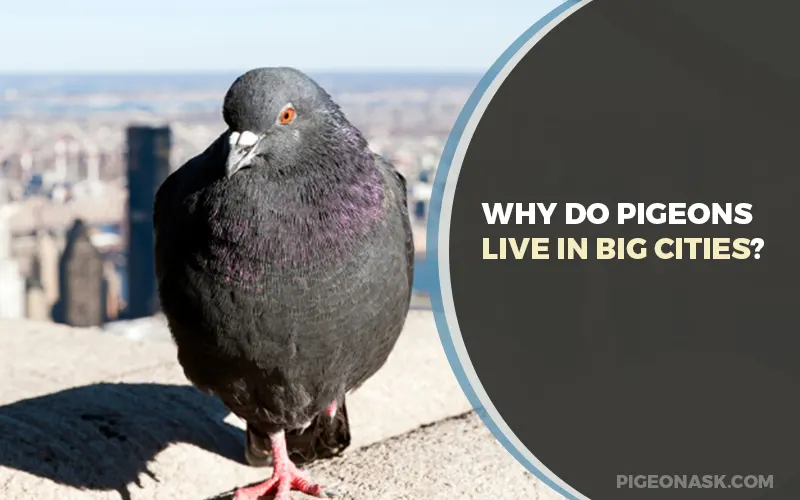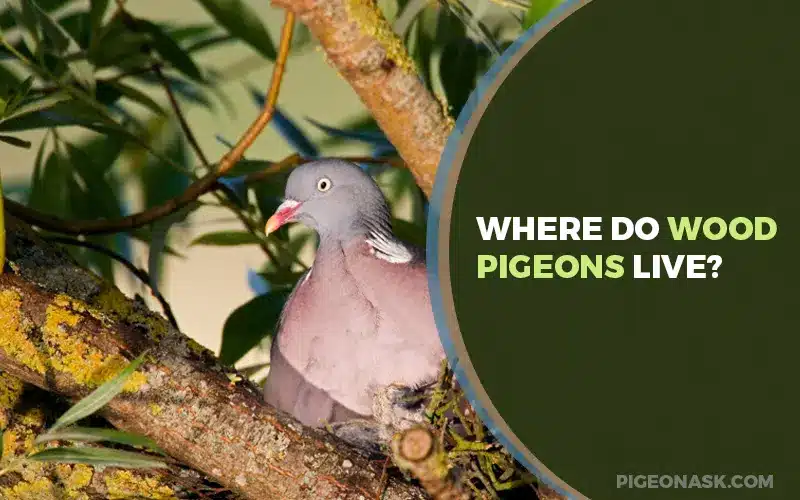Pigeons’ Habitat: Urban And Rural Habitat
Pigeons are ubiquitous urban dwellers. An estimated 260 to 400 million individual birds can be found around the world thriving in cities and towns. If you look around, you are likely to spot one pecking or bobbing its head nearby. These highly adaptable birds have integrated themselves into human environments, becoming a familiar sight and sound in neighborhoods everywhere.
Look around and you’ll notice more or less one pigeon around you, it’s that common. Around 260-400 million species of pigeon are present worldwide. They appear around you chirping or bobbing!
But have you ever wondered where this bulk amount of pigeon habitat is? Starting from every public place to your house it roams everywhere. And their habitat is all over the places like in urban centers, rural areas, the wilderness, or even wide fields.
They may live on your veranda or on top of your house. However, their habitat is impacted by numerous things, therefore let’s talk about that in detail –
What Is the Natural Habitat of Pigeons?
Just like I’ve mentioned earlier there are a number of choices when it comes to pigeons for their habitat. In two areas it’s divided and then I will be sectioning in parts for a better understanding –
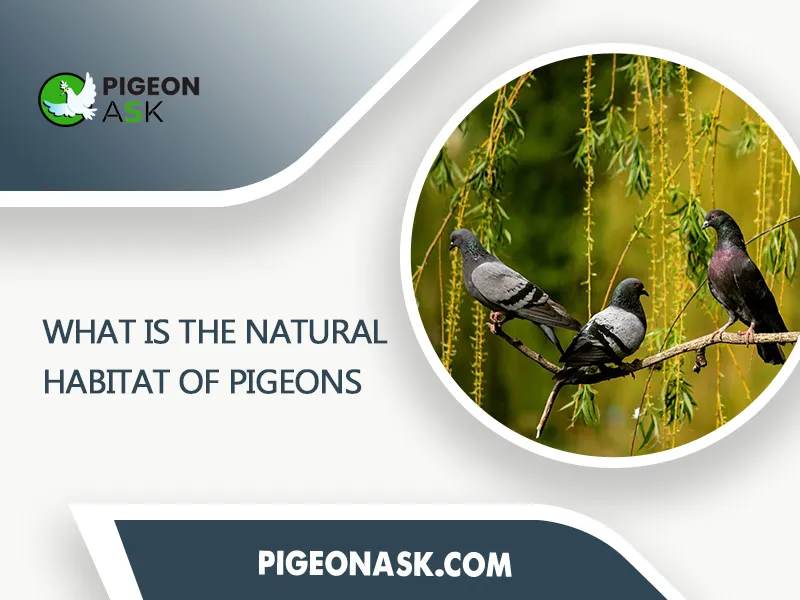
Urban Areas
Except in wild areas, pigeons have mastered the art of surviving in man-made environments. They have carved out their own niches in the landscape by settling in peculiar urban locations. Such as-
Abandoned buildings and rooftops – Mostly in cities, pigeons choose abandoned buildings or the rooftops or windows of the building for their nest. These areas are less visited by humans comparatively, which is a plus point for them.
Moreover, as these areas are more accessible to food and assure good shelter in harsh weather, pigeons love it.
Bridges – Yes! You have heard it right. Pigeons, one of the favorite spots for building their habitat, are under the bridges. As this place is concrete and assures their security from predators.
Parks – While walking, have you ever heard a pigeon cooing? As parks have numerous leafy trees and fountains to drink water, it is a perfect habitat for pigeons.
Also, as parks are covered with many trees, it keeps the nest of the pigeon safe in the harshest weather. Anywhere there is quietness available they want to go there and choose their habitat there.
Public place – Be it a bus stop or train station, pigeons are seen to form their habitat close to it. Whenever a passer-by crosses and drops their leftovers, they eat them as they love eating human leftovers.
Rural and Wild Areas
Pigeon habitats are not only in cities, but they are in rural and wild areas too. They chose mostly any cliffs and caves for their habitat. Targeting the face or beyond of the cliffs, they form their nest around.
Plus, they also choose the inside of the cave or the opening of the cave as their habitat. These places allow them to have a crystal-clear look which keeps them alert and safe at the same time from predators.
Moreover, pigeons are often seen to form their habitat in woodlands or in any farmlands of rural areas. The reason behind choosing these areas is the availability of seeds, grains and vegetables in bulk.
Furthermore, you’ll be amazed to hear that this fastest flier bird loves to choose mountain peaks too as their habitat. To taste the adventurous vibe, pigeons choose high-altitude areas where there are fewer predators.
You already can imagine how adaptable this pigeon bird is! So how can it leave the desert as its habitat? But as this place has a scarcity of food and most importantly less water availability, pigeon’s first preference is never a desert area.
What Abilities Do Pigeons Have to Adjust to Their Habitat?
We already know that pigeons are very flexible animals. Whether they live in urban or rural areas, they can thrive both in the concrete jungle and in abandoned buildings.
To be able to live almost anywhere, they need to have certain skills, which I will talk about below:
Starting with their diet, eating foods like grains, seeds, and veggies keeps them healthy. Besides, as they are so adaptable, they can also adapt to different surroundings.
In addition, their ability to fight disease is strong. They have been able to fight any diseases and parasites that are spread by people as they have crossed many generations. And due to this immunity, they can now adapt to any setting.
Likewise, one more thing that helps them adapt to their environment is that they like to fly in groups. When they stay in a flock, they can share food, and housing, and protect each other, which keeps them safe from predators.
How Do Pigeons Choose Their Habitat?
Pigeons’ versatility makes it hard to identify their habitat choice. They survive in urban and rural areas. This shows their adaptability and resilience.
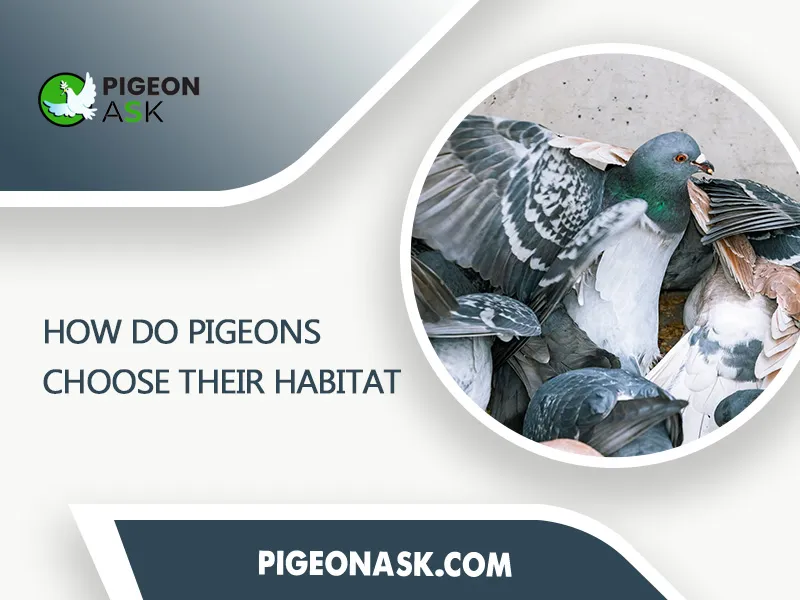
However, they like some characteristics of their surroundings which can make you understand what habitat they choose –
- Beginning with their first requirement, which is the availability of food. If there are foods like seeds, crumbs, fruits, vegetables, and even leftovers, they’ll consider it as an ideal place for their habitat.
- Plus, the sources of water have to be fresh. Even in jungle areas, they prefer to choose their habitat where there is a river or lake to get 24/7 water.
- Last but not least, their safety. How can they choose a habitat where there is no security? For this, they initially chose places that are quite higher, quieter, and not around other pigeons.
What Is the Most Preferred Habitat of Pigeons?
Pigeons love to build nests for their habitat. Mostly they start building it before laying eggs. However, the nest building preparation starts with choosing a location.
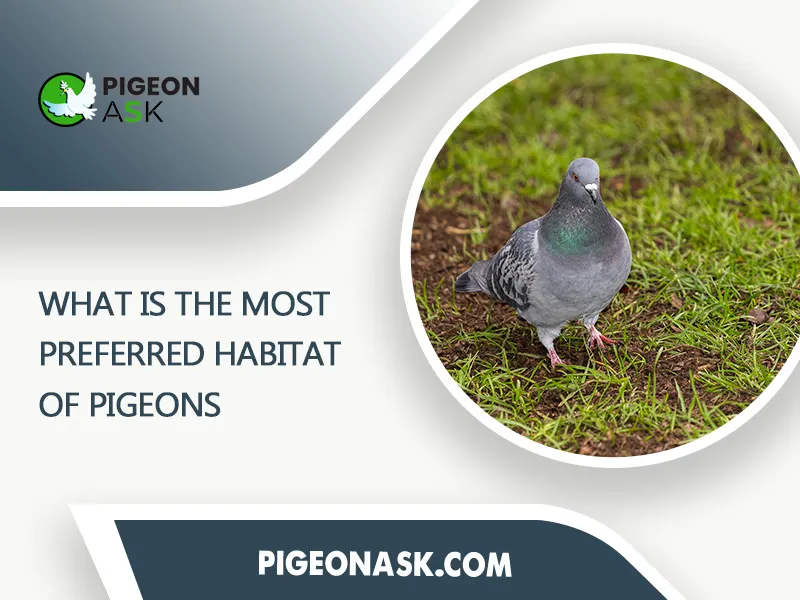
After it’s done, the male pigeon brings the materials, and the female pigeon arranges it according to her liking. They use materials like leaves, grasses, twigs, strings, feathers, and even paper, etc.
On top of that, they ensure that the nest is strong enough to hold their eggs safe and warm. Thus, through working together they form this messy habitat!
What Challenges and Threats Pigeons Face in Habitat?
Challenges and threats are not only limited to humans, but pigeons have to face them too! They survive like fighters on a regular basis to ensure their safety.
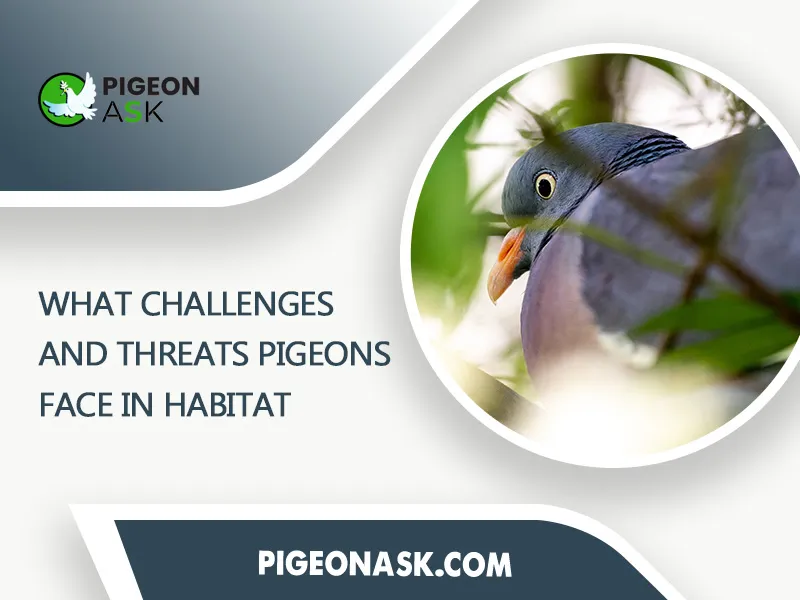
Some of the important challenges are discussed below –
- Till now you’ve known that they prefer buildings for their habitat. But when these buildings have development projects, it creates habitat loss for them.
- Even in rural areas when deforestation is taken place, they lose their habitat. Then, they need to immediately change their location as it will create a challenge to survive there.
- Moving on, as pigeons are adaptable, they choose diverse areas. But when they choose cities that are filled with air or water pollution, it attacks their health and decreases their lifespan. Fumes from exhaust, cars, dust, or pesticides can make them suffer.
- Another challenge they face is their limitation in accessing food sources when there are competitors who make it hard for them to eat ample food. They face these challenges mostly during harsh weather.
- Unfortunately, they have predators and hunters behind them which makes their lives more threatening. For example, cats, foxes, owls, and hawks can cause harm to them.
- As pigeons live in groups, it is quite common for them to share their food or come in close contact. That’s when they spread diseases among themselves.
- When there is any bad weather or shifting of weather, pigeons suffer most. As the water gets polluted and there is a scarcity of food, which makes it a challenge for them to survive easily.
- Lastly, they face conflict with humans too. As they stay in buildings, they damage it by droppings and nesting which makes humans angry and causes them a threat from them.
Although pigeons can adapt to many situations, they still prioritize their surroundings. However, issues persist due to the environment failing to fulfill their requirements. Even if they have the ability to stay in dessert, it wouldn’t be their top pick as it doesn’t fulfill their demands.
Moreover, pigeons are extremely selective about their housing, despite their adaptability. In the above conversation, the details have been discussed and I hope this article has given you a deep insight into pigeons’ habitat!


